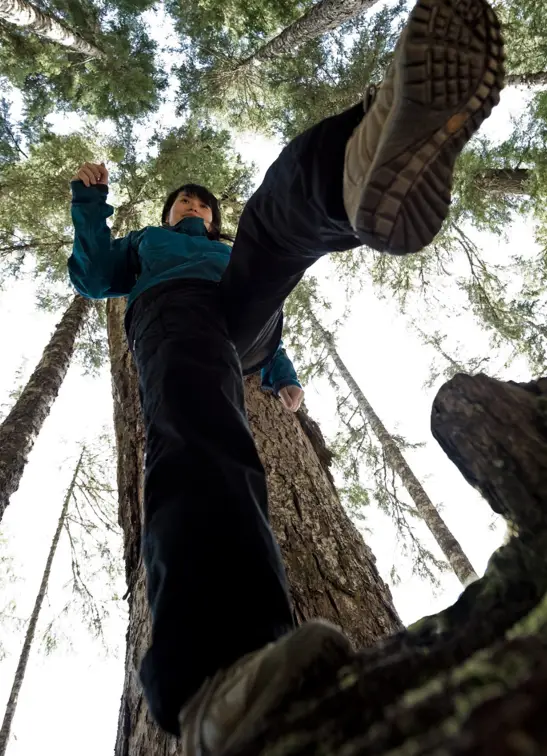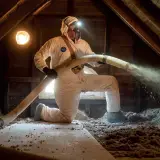


How tiny, ordinary changes can lead to remarkable results
Despite the likely 6 billion Earth-like planets in our galaxy. Despite the observable universe containing around 300 sextillion stars. Your presence here on planet Earth is significant. In fact, your actions can overcome these—quite literally—astronomical numbers by making even the smallest changes. This kind of thinking may seem counterintuitive. It may not make good math, but it does make a difference.
The truth is, every one of us is capable of being a force for good. And we’re here to help you find those little things—energy efficiency and otherwise—that aren’t so little once you begin to add them up. Speaking of adding things up, we didn’t even know sextillion was a number. Turns out it is. And that number contains a boatload of zeros—21, actually.
Let’s get real
We’re here to deliver practical, pragmatic information that will give you useful, actionable ideas. For starters, consider this: A small act like changing the air filter in your heating and cooling system isn’t in itself huge. Buying one smart power strip will not result in the world throwing you a parade. The cynic will say, “That’s just a drop in the bucket.” And they are right. But it all really depends on the drop and the bucket. We’ll help you find some acts that can collectively make the largest impact.
And never forget the value of the drop. A constant drip, over time and with dogged persistence, can drill a hole through a rock. So, let’s start drilling holes.
Studies have shown that performing acts of kindness can not only boost your mental health but your physical well-being as well.

Good acts at home
Now that we’ve used them as an example, let’s talk air filters. You may just change the filter so your HVAC system can run more efficiently. And that’s good. A clean one can lower your air conditioner’s energy consumption by 5% to 15%. That’s drop one.
That clean filter can also improve the air quality in your home. Drop two. The cleaner air quality can result in a cleaner home. Drop three. That means you won’t have to dust so often. And not dusting is a lot like weeding a garden or showering—people only notice if you don’t do it.
Getting back to air quality. A clean filter can promote good health for everyone in your home, especially children and older adults. That can result in fewer allergic reactions, fewer trips to the pharmacy and fewer trips to the doctor. Drop, drop, drop. So, in conclusion, good acts add up, and every time you must unnecessarily dust, you lose a little part of who you are as a human being. And no one wants that. So, it’s just one filter, but it really isn’t. It has a ripple effect of benefits.
And think of changing from incandescent light bulbs to LEDs. If that isn’t the smallest deed you can do for your home, it is at least in the top five of small actions you can do for your home. An LED does so much more than light a room. These contraptions last longer. Today’s LED bulbs can last up to 15 times longer than traditional bulbs. They are also cooler to the touch than traditional bulbs, reducing the risk of catching anything on fire. And, most importantly, they use less energy. Not a big deal until you see it through a larger lens, specifically a national lens. The U.S. Department of Energy projects that the energy saved by a national switch to LEDs could equal 348 terawatt-hours by 2027. That’s enough to power 33,810 homes for one year.
Many of these small acts of efficiency can be accomplished with one simple move—scheduling a Quick Home Energy Check-up. From checking for insulation levels and air leakage to installing efficient-flow showerheads and LED bulbs, we can help you turn your home into the center of the energy efficiency universe.
Good acts for yourself
Now, some might initially think that a good deed for yourself is selfish. They may think any action you take that helps yourself disqualifies that deed from being “good.” It’s not that they’re wrong. It’s just that they may be missing something. You must take care of yourself before you can care for others. So, let’s start viewing actions for yourself as nothing short of generous. With that in mind, consider something as simple as recycling. Or taking a long walk outside and collecting any litter you find. You’ll improve the look of your neighborhood (good for your community) and get a nice hit of dopamine (good for you).
The science behind good deeds is impressive. Studies have shown that performing acts of kindness can not only boost your mental health but your physical well-being as well. Good acts in a crisis, for example, give you what’s been termed a “Helper’s High,” with surges of dopamine and endorphins flooding your brain. And here’s a amazing one: Medical studies have discovered that people who perform good deeds have more immunoglobulin A—an antibody that fights off infection. Yes, displays of compassion can give you a super immune system. No, you will not be asked to star in an epic superhero movie featuring you and your magical abilities. Good acts can do a lot, but let’s not start overpromising here.
This potential change in your life will create good energy. You’ll start seeing the world differently, and people will start seeing you differently through your actions. And have we mentioned how you can change your filter and dust less? Not dusting should be one of your favorite deeds for yourself and your super-charged immunity.

There’s no need to stop doing good deeds when you head out to your place of employment. You could bring doughnuts, put the dishes in the dishwasher, thank someone for their help and praise folks for their accomplishments. And since we’re being all science-y, another study found that good deeds in the workplace can lead to increased communication, better teamwork, a boost in creativity and an overall sense of fulfillment. Not a bad return for doing a little good.
And your good deeds can also help your company succeed when you introduce energy efficiency programs into your business. Because saving energy and money at work could give your profitability a boost. And your comfort. And your ambiance. Just look at our friends who made small changes that made a big difference at Starry Night Bakery in Timonium. They worked with BGE’s Small Business Energy Solutions Program to switch out all their overhead lighting for LEDs. And now, owner Shannon Clarke says, “It’s beautiful. It’s so bright and gorgeous in here now.” And she’s saving on energy costs. No matter how much money you save with an energy efficiency improvement or two, still bring doughnuts. Because doughnuts.
Good acts for others
This is easily our favorite of all the deed categories because these are the deeds that have an exponential effect. It’s also so enjoyable because you will never know the good you’ve really done. You could donate clothes and toys to charity or give books to little free libraries or volunteer at the local nonprofit. It’ll change your outlook and really make quite a difference.
Holding the door open for a stranger could be the tipping point on a complete turnaround in their day. Letting a random driver merge into your lane might make their commute. Paying for the meal of the person behind you in line at that burger joint may relieve some financial stress. Now, here’s the cool part: Your good energy is designed to be contagious. And the results are exponential.
The results
Your acts may be small, but your influence is great. You may see it as only a drop in the bucket, but consider the drop and the bucket. Good acts in your home and your life contribute to goodness in a much larger world. Start with your home.
BGE offers lots of programs that can result in good acts. Getting a Quick Home Energy Check-up or an HVAC Tune-up—both of which are available at no additional cost—can help you save money. Great things often start with small acts. These small acts join other small acts to form a tidal wave of positive change. And that wave will leave stronger, more sustainable communities in its wake.
